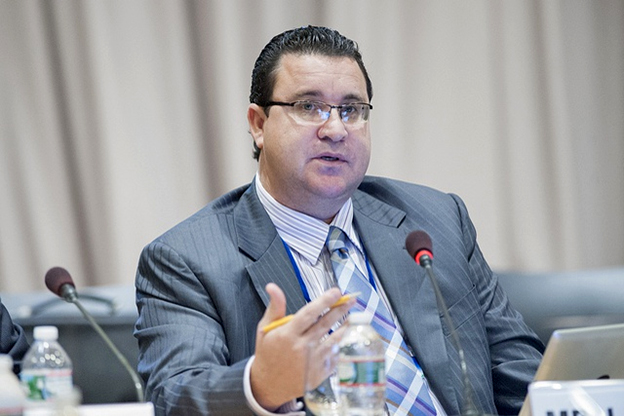The World Bank says government needs to adopt a multi-stakeholder approach and implement well-programmed development policy actions and multisector interventions to successfully transform the Ghanaian economy and boost labour market performance.
For this to happen, the Bank recommended six strategic interventions to strengthen the country’s economy and labour market including identifying and nurturing economic activities and enterprises which could potentially increase product complexity and strengthen the participation of enterprises in global value chains.
The recommendations were contained in the 5th Ghana Economic Update Report launched on the topic: “Structural Transformation and Labour Market Performance: Challenges and Opportunities” in Accra.
The Ghana Economic Update is part of a World Bank Advisory Services and Analytics series on Ghana’s economy.
The report provides a snapshot of recent economic development and medium-term prospects. Every edition includes a broad overview of the country’s macroeconomic and structural dynamics, as well as a special topic, dedicated to a current policy issue.
Mr Mpumelelo Nxumalo, an Economic Consultant at the World Bank Group, presenting the recommendations, said government could also harness the potential of digital technologies and proactively adjust to the changing world of work and increase and enhance the participation of women, the youth, the poor and vulnerable in the labour market.
He said the country could improve human capital in the current and future workforce and should design systems and interventions to be resilient and responsive enough to protect the economy and labour market against disasters and shocks.
He said the Covid-19 crisis had substantially weakened Ghana’s growth outlook, short-term prospects had deteriorated sharply, with significant uncertainty around the pace of the recovery in the medium term.
He said the severity of the crisis would depend on not only the actual spread and duration of the domestic outbreak, but also on the post-crisis growth path of the global economy.
The Economic Consultant said the short-term negative impact on the economy would come through a decline in external demand, decline in commodity prices, particularly of oil, and lower foreign direct investment and tourism receipts.
Mr Kwabena G. Kwakye, an Economist at the World Bank, said the country’s structural transformation and the Labour Market over the last three decades had experienced strong and sustained economic growth, contributing to a substantial reduction of poverty and an increase in shared prosperity.
He said the country’s progress in poverty alleviation had been primarily due to structural transformation, increasing average productivity within sectors and educational attainment among workers.
However, he said the pace of poverty reduction appears to have slowed in recent years and there had been a lack of growth-enhancing structural transformation in Ghana. He said value-added activities and employment had progressively shifted from agriculture to industry and services, a pattern observed in many other countries.
“The shift toward industry has been driven by construction and mining, while the shift to services has been driven by trade,” he said.
He said the contribution of manufacturing to value added, employment, and exports “have declined over time and there were indications that Ghana had begun to deindustrialize prematurely.”
He said public interventions across multiple sectors would require coherent and coordinated efforts between multiple government ministries and agencies.
He said it would also be crucial to secure effective private sector and civil society participation in the design, implementation, and monitoring and evaluation of policies and interventions.
“A diverse set of interventions is needed,” he added.
Mr Kwakye said the interventions comprise support and incentives for international and domestic private investors to enter into specific sectors, locations, and value chains, as well as to develop and provide specific goods and services for domestic and international markets in a labor-intensive and socially inclusive manner.
He said incentives were also needed for private and public providers to develop the skills of current and future workers which were valuable for employment and would increase productivity and raise earnings. The skills range from vocational and technical, digital, and business management skills to cognitive and socioemotional skills.
On Macroeconomic Outlook and Risks, Ghana’s economic growth momentum is expected to dissipate, and inflation could breach the Bank of Ghana’s target of 8±2 (eight plus negative 2) per cent in 2020 but is expected to remain within the target range in the medium term.
Mr Pierre Laporte, the Country Director of the World Bank, reiterated the Group’s commitment to supporting Ghana’s growth and development agenda, towards economic transformation.
He commended government for acting swiftly, since the start of the Covid-19 pandemic to mitigate and contain its impact on the health and livelihoods of Ghanaians.
Latest Stories
-
CJ removal petition: Citizens must not sit back and watch politicians to get their way – NPP MP
6 minutes -
Thousands gather to bid farewell to ageless Ga music icon Naa Amanua Dodoo
24 minutes -
From despair to hope: Khadijah Bawuma receives life-changing scholarship after Myjoyonline report
41 minutes -
Mob kills seven suspected kidnappers in Nigeria’s Edo state
2 hours -
Joseph Paintsil to make injury comeback after six weeks out
2 hours -
14 arrested over missing ECG containers at port
2 hours -
Energy Minister demands forensic audit over missing ECG containers
2 hours -
Joseph Paintsil unveils debut EP ‘Emergency’, set for April 4
2 hours -
Petition to remove CJ is not politically motivated – Adawuda
2 hours -
‘All that glitters is not gold’ – initial comments on Ghana’s Gold Board
3 hours -
3 in 4 voters rate Dampare’s performance very high during 2024 election – Mussa Danquah
3 hours -
Weija-Gbawe MP urges urgent action on flooding in Accra
3 hours -
I was surprised to have started against Madagascar – Jerome Opoku
4 hours -
It would’ve been helpful to receive initial comments from CJ on her removal – Dr Osae Kwapong
4 hours -
Adhering to transparency in CJ removal case enhances trust in judiciary – Dr Osae Kwapong
4 hours

